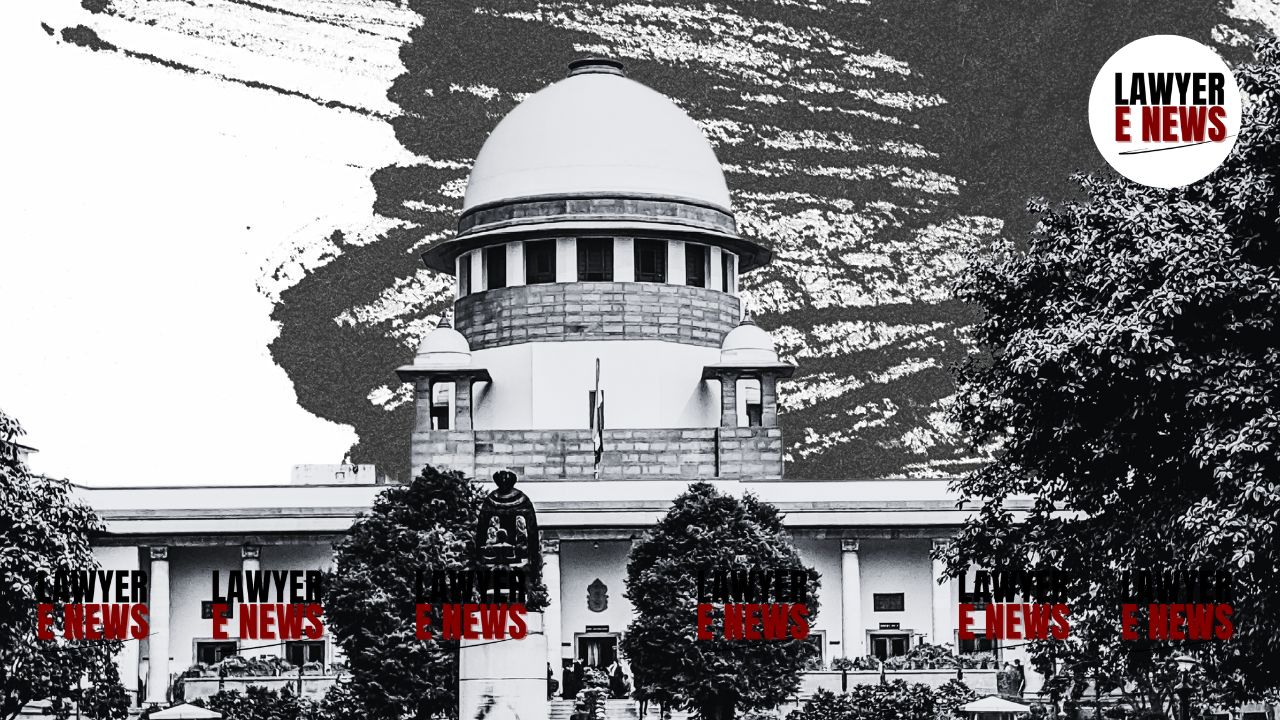-
by Admin
15 February 2026 5:35 AM



Supreme Court of India overturned a controversial High Court judgment that had ordered a de novo investigation against P. Manikandan, who had been acquitted in a capital punishment case. The Court ruled that the reinvestigation and subsequent prosecution violated the constitutional protection against double jeopardy under Article 20(2) of the Constitution and Section 300 of the Criminal Procedure Code, 1973 (CrPC). The ruling reaffirmed the principles of fair trial and protection from being tried twice for the same offence.
The case revolved around the alleged abduction and murder of a 4-year-old girl in Tamil Nadu in 2013. P. Manikandan, the appellant, was convicted by a trial court in 2018 and sentenced to death. However, the Madras High Court later acquitted him due to lack of evidence, observing that the prosecution had failed to establish guilt beyond reasonable doubt.
Despite the acquittal, the High Court directed the Central Bureau of Investigation (CBI) to conduct a de novo investigation into the same offence. The CBI subsequently filed a chargesheet implicating the appellant, and trial proceedings were initiated. Manikandan approached the High Court seeking quashing of the chargesheet, which was dismissed, prompting the present appeal to the Supreme Court.
Legal Issues Before the Supreme Court
Power to Order Reinvestigation vs. Retrial
Could the High Court, while acquitting the appellant, direct reinvestigation under Section 386 of the CrPC?
Violation of Double Jeopardy Principle
Did the High Court’s direction and subsequent prosecution violate the constitutional protection against double jeopardy under Article 20(2) of the Constitution and Section 300 of the CrPC?
Right to Fair Trial and Faulty Investigation
Should the accused be subjected to reinvestigation and prosecution for the same offence due to alleged lapses in the initial investigation?
High Court Exceeded Jurisdiction by Ordering Reinvestigation
The Court clarified the scope of Section 386 of the CrPC, which empowers appellate courts to order retrials but does not extend to directing reinvestigation. Retrial, the Court noted, pertains to recommencing judicial proceedings, whereas reinvestigation involves restarting the investigative process, which is governed by Section 173(8) of the CrPC and not Section 386.
“Section 386 of the CrPC enumerates the powers of the appellate court and provides for retrial in exceptional circumstances. It does not permit reinvestigation. The High Court’s direction for reinvestigation was, therefore, without authority of law.” [Paras 24-25]
The Court distinguished between retrial and reinvestigation, emphasizing that reinvestigation is an extraordinary measure reserved for rare cases involving extraneous circumstances, as noted in State of W.B. v. Committee for Protection of Democratic Rights (2010).
Double Jeopardy: Protecting Against Repeated Trials
The Court ruled that the High Court’s direction for reinvestigation violated the principle of double jeopardy enshrined in Article 20(2) of the Constitution and Section 300 of the CrPC. This principle prohibits prosecuting or punishing a person twice for the same offence. The Court highlighted that:
Three Conditions for Double Jeopardy:
The accused must have faced previous prosecution before a competent court.
The previous acquittal or conviction must remain in force.
The subsequent prosecution must be for the same offence or based on the same facts.
Application to the Present Case:
The appellant had been acquitted by a competent court, and the acquittal remained in force. The subsequent reinvestigation and prosecution were based on the same facts, violating the principle of autrefois acquit (formerly acquitted).
“The appellant’s acquittal by the High Court remains in force, and the subsequent reinvestigation on the same facts for the same offence constitutes a clear violation of Article 20(2).” [Para 33]
The Court cited precedents, including Maqbool Hussain v. State of Bombay (1953) and Monica Bedi v. State of A.P. (2010), to reaffirm the scope of the double jeopardy protection.
Right to Fair Trial and Faulty Investigation
The Court acknowledged that while lapses in investigation could undermine justice, they could not justify subjecting an accused to repeated prosecutions. Referring to Kailash Gour v. State of Assam (2012), the Court reiterated that the accused must benefit from investigative failures rather than being penalized.
“The principle of ‘innocent until proven guilty’ cannot be sacrificed on the altar of investigative inefficiency. Faulty investigation does not justify reinvestigation or retrial unless exceptional circumstances exist.” [Para 21]
Key Takeaways from the Judgment
Reinvestigation Distinguished from Retrial
The Court clarified that appellate courts have no authority under Section 386 of the CrPC to order reinvestigation. This direction was beyond the High Court’s jurisdiction and therefore unsustainable.
Double Jeopardy Is a Fundamental Right
The Court reinforced that once acquitted, an individual cannot be subjected to reinvestigation or retrial for the same offence without violating Article 20(2) of the Constitution and Section 300 of the CrPC.
Faulty Investigation Cannot Justify Reinvestigation
Investigative lapses must not prejudice the accused. The Court warned against using reinvestigation as a tool to compensate for prosecutorial failures.
The Supreme Court quashed the High Court’s order directing reinvestigation and all subsequent proceedings, including the chargesheet filed by the CBI and the trial initiated against the appellant. The appellant was acquitted of all charges.
Date of Decision: December 19, 2024
